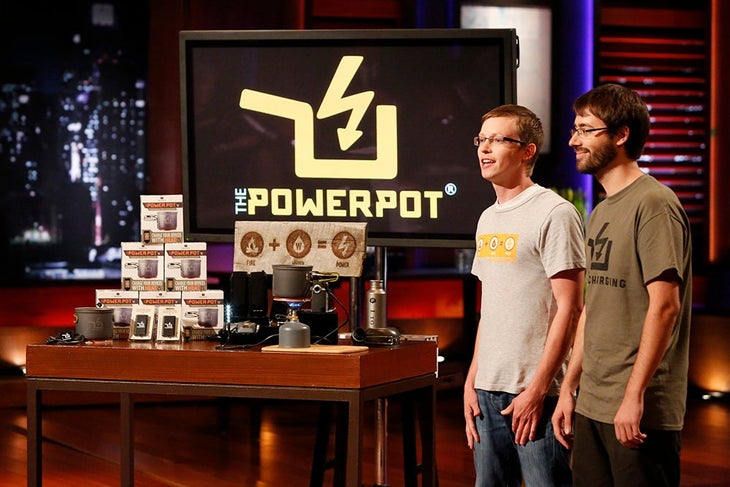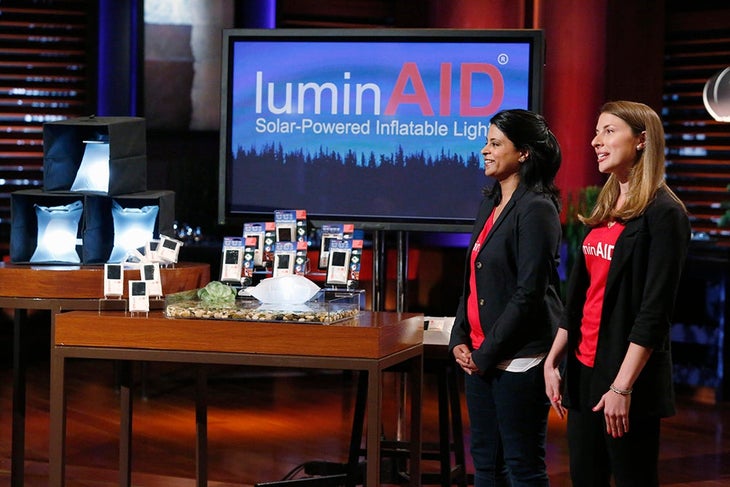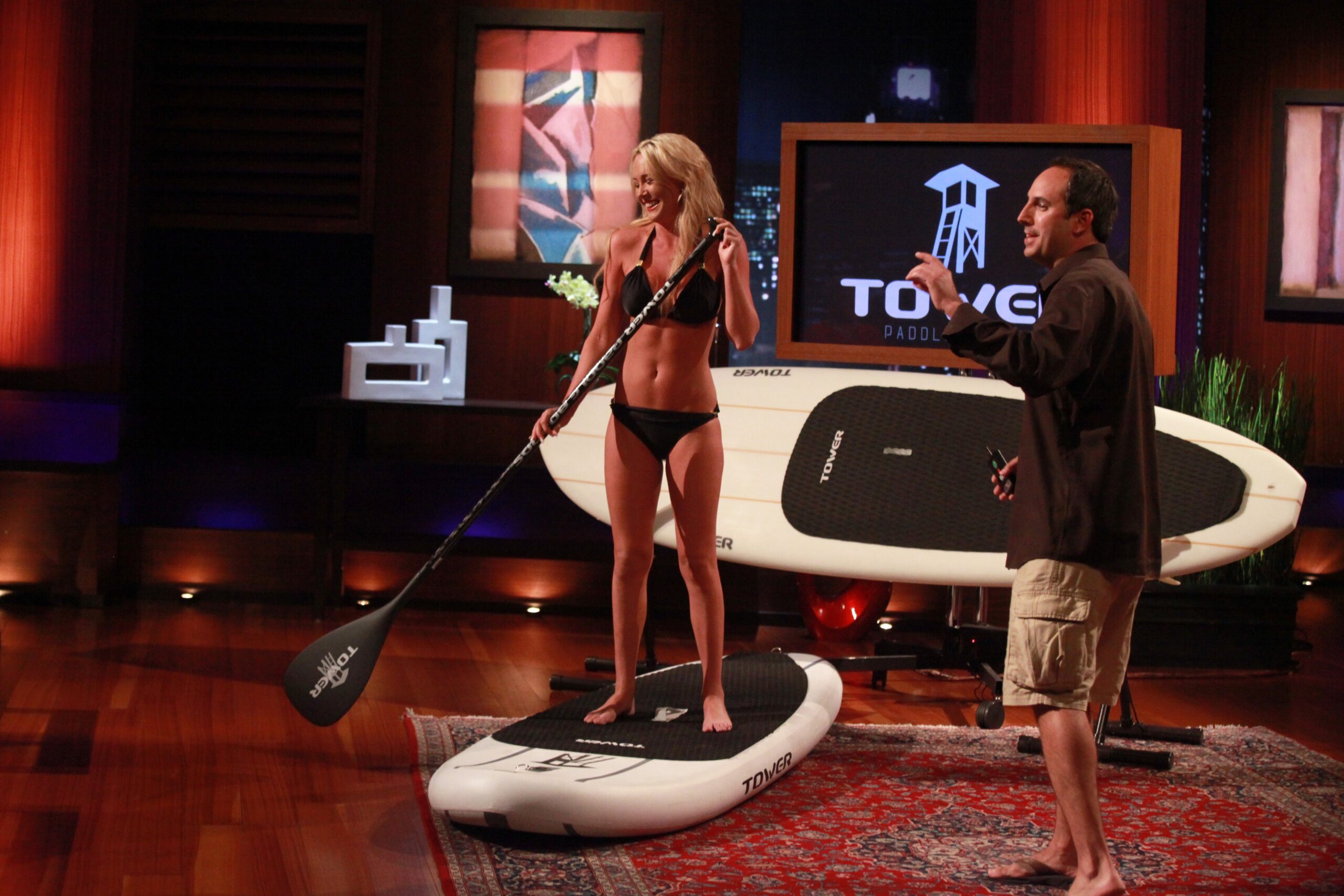Stephan Aarstol’s appearance on ABC’s reality business show Shark Tank did not start out well.
The founder of California-based Tower Paddle Boards found himself awkwardly silent after a problem with his slide show caused him to lose his train of thought.
He swore. Kevin O’Leary, one of the “sharks,” as the celebrity investors are known, quipped, “Don’t worry, it’s only your biggest moment in your life.” Shark Barbara Corcoran is shown later calling him “the worst presenter I’ve ever met.”
Somehow, after the sharks are shown asking questions and breathing life into the discussion, he managed to keep the interest of two of them, eventually landing a $150,000 investment from billionaire Mark Cuban.
“I’m known as the worst pitch in the history of Shark Tank that still got a deal,” said Aarstol, adding that being on the show helped boost his 2012 sales to $1.3 million from $265,000 the prior year.
For Aarstol and other outdoor and lifestyle entrepreneurs, risking looking foolish in the face of snarky remarks, braving the nerves that come with a national television appearance, and facing the unknowns of the editing process all paid off, even for those who ended up not securing an investment.
Matthew “Griff” Griffin, CEO of Washington-based footwear, clothing and accessory company Combat Flip Flops, said going on the show wasn’t quite as nerve-wracking, given his previous career as an Army Ranger with tours in Afghanistan and Iraq.
After all, “Nobody’s going to shoot at us or kill us on the show,” he said.
Much of the stress for him came before entering the Tank. From April to June 2015, he and his team watched every episode and tracked trends in questions and responses.
The hard work paid of with a three-shark deal for $300,000 for 30 percent of the company. In the first 36 hours after the show aired in February, the company’s revenues exceeded its sales of $300,000 for all of 2015, he said.

Extensive preparation also paid off for David Toledo, co-founder of Power Practical, which makes backcountry USB charging gear. He had previous investors in his company pretend to be sharks while he refined his pitch. Power Practical ended up with a $250,000 deal from Cuban in a show that aired in 2014.
Of course, no matter how much the entrepreneurs prepared, they didn’t control how the footage was edited. Some participants said the editing process can result in an aired segment being comprised of footage that isn’t necessarily arranged in chronological order.
Steven Sashen, CEO of minimalist footwear Xero Shoes, waited for months to see how his segment turned out, afraid he and his wife would end up looking like “morons” after the editing.
Their pitch was nerve-wracking, with sharks either firing out questions that sometimes overlapped or seemingly ignoring him at other times, he said.
He ended up happy with how the segment turned out even though parts that didn’t go well for Xero Shoes made it on the air. O’Leary, who ended up making Sashen and his wife an offer they thought was too low, called them “probably delusional entrepreneurs.” Corcoran said Sashen gave her a headache and reminded her of her first husband.
Sashen says he didn’t take the jabs personally because, after all, the Shark Tank team is trying to make good TV.
It was more difficult for Kristina Guerrero, CEO of pre-packaged dog-food bar maker TurboPup, to not take things personally. And who could blame her? During her episode in 2015, O’Leary said her small sales compared to the multi-billion-dollar pet food industry was “TurboPoop on a stick.”
“To me my business is my kid,” she said. “When you have five really brilliant entrepreneurs who are really successful whose opinions matter ripping things apart … it’s tough.”
But being in that “boxing ring” with the sharks turned out to be well worth it. A $100,000 deal with shark Daymond John has enabled her to expand to about 1,200 stores, up from around 50 prior to the show. She is also getting ready to launch a new line of dog snacks.
Despite all the preparation, cameras, and editing, Shark Tank is far from fake or scripted, some participants said.

Shark Tank has a lot of “integrity,” with the entrepreneurs deciding how to pitch their products, instead of producers prodding them to present them a certain way, said Anna Stork, co-founder of portable solar lighting maker LuminAID. She was featured in February 2015 and inked a deal with Cuban for $200,000.
There also aren’t retakes if participants mess up, said Jeff Popp, co-founder of Co.alition, a mobile electronics-compatible backpack maker that didn’t seal a deal on air.
“The authenticity of the show was pretty awesome,” he said.
Even though neither Popp nor Sashen inked deals on the show, they still saw benefits from being on air. After all, the show has millions of viewers every week. Xero Shoes did about three month’s worth of sales in the week following the first airing in 2013, Sashen said. Popp said going on was valuable exposure for the brand.
Companies going on Shark Tank really can’t lose, even if they don’t get an investment deal, because they get valuable feedback throughout the process, in addition to the potential for increased sales and website traffic, Popp says.
“It’s a valuable experience,” Popp said.
The companies in this article that ended up doing deals also have seen benefits that have gone well beyond the collective $1 million they raised from investors.
The most valuable thing for Toledo has been retail leads he’s been able to get from companies wanting to sell his products, including German retailer GlobeTrotter. Being on the show also helped Toledo close deals with REI and Cabela’s.
Anecdotal evidence seems to suggest Cuban often perceives outdoor companies quite favorably, but he declined to comment for this story. Stork said Cuban’s team has been a great resource with help with accounting and strategic and intellectual property advice.
While the original broadcast helped boost Tower Paddle Boards 2012 sales to $1.3 million from $265,000 the prior year, re-airings and an update show continue to send sales traffic its way, Aarstol said. In 2014, the San Diego Business Journal named it the fastest growing private company in the city. It made the Inc. 500 list last year. And this year, the company is on track to do around $10 million in sales, Aarstol said.
“Shark Tank jumped us forward two or three years,” he said.


